Living in a rural area provides a beautiful opportunity to own a rabbit, as the space and natural environment can offer an enriching life for these charming pets. However, selecting the right breed and understanding their care requirements is essential for a happy and healthy rabbit. This guide will cover everything you need to know, from dietary needs to health issues, to help you choose the perfect rabbit for your rural home.
1. Best Rabbit Breeds for Rural Areas
While many rabbit breeds can thrive in a rural setting, some are particularly well-suited for this lifestyle:
Flemish Giant:
Known for their large size and gentle nature, Flemish Giants need ample space to roam
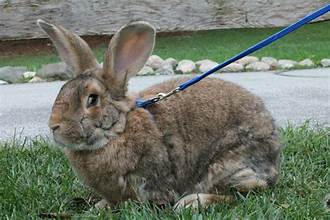
New Zealand:
A sturdy and adaptable breed, New Zealand rabbits are great for companionship and working animals.

Silver Fox:
This breed is known for its unique fur and calm temperament, which makes it ideal for rural environments.
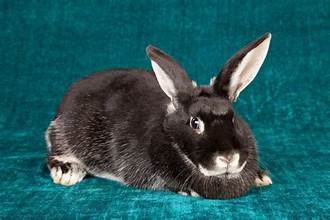
French Lop:
With their friendly nature and larger size, French Lops can enjoy the space a rural area provides.
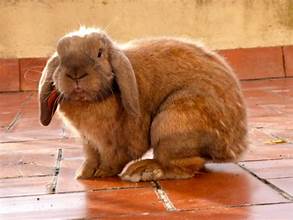
American Chinchilla:
These rabbits are hardy and can handle outdoor living with proper shelter.
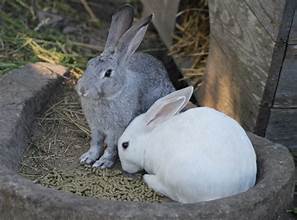
2. Dietary Needs
Rabbits require a balanced diet to stay healthy. Key components include:
Hay:
The mainstay of a rabbit’s diet is that hay provides the necessary fiber for digestion. Timothy Hay is a popular choice.
Fresh Vegetables:
Excellent additions include leafy greens like romaine lettuce, cilantro, and parsley.
Pellets:
High-quality rabbit pellets provide essential nutrients but should be given in moderation.
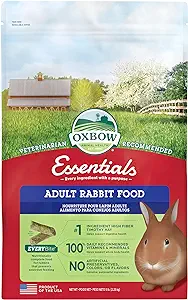
Fresh Water:
Clean, fresh water should always be available.
Avoid feeding rabbits sugary treats or foods high in carbohydrates, as these can lead to digestive problems and obesity.
3. Grooming
Grooming requirements vary by breed but generally include:
Brushing:
Regular brushing helps to manage shedding and prevent matting, especially for long-haired breeds.
Nail Trimming:
Rabbits’ nails grow continuously and need regular trimming to avoid overgrowth.
Ear Cleaning:
Check and clean their ears periodically to prevent infections.
4. Habitat
Creating a suitable habitat is crucial for your rabbit’s well-being:
Housing:
Outdoor hutches should be spacious, predator-proof, and weather-resistant. They should also have a cozy area to retreat to in bad weather.
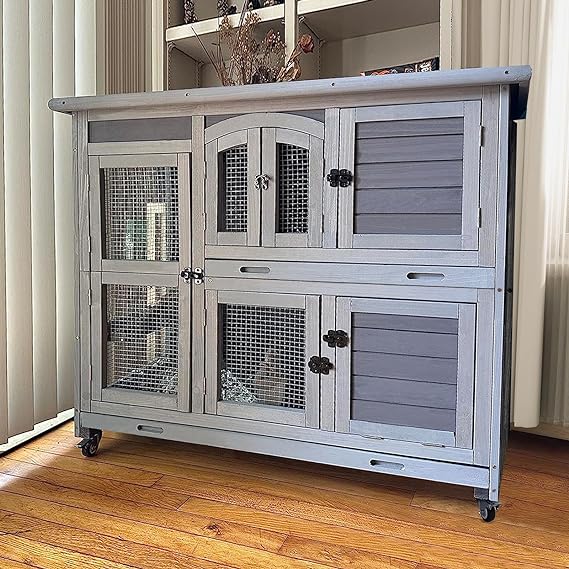
Space:
Rabbits need plenty of room to exercise and explore. A large, secure run is ideal.
Bedding:
Provide soft, absorbent bedding such as straw or hay. Do not use cedar or pine shavings, as they can be harmful.
Toys and Enrichment:
Rabbits are intelligent and need mental stimulation. Provide toys, tunnels, and chew items to keep them entertained.
5. Exercise
Exercise is vital for a rabbit’s physical and mental health:
Daily Activity:
Allow your rabbit time outside their hutch daily to explore and exercise.
Supervised Playtime:
Supervise them during playtime to ensure their safety, especially if other animals are present.
Supervised Playtime:
Supervise them during playtime to ensure their safety, especially if other animals are present.
Dental Problems:
Overgrown teeth may cause pain and eating difficulties. Provide chew toys to help wear down teeth.
Gastrointestinal Stasis:
A potentially life-threatening condition where the digestive system slows down. Ensure a high-fiber diet and monitor eating habits.
Parasites:
Regularly check for signs of parasites like fleas and mites and treat them promptly.
Vaccinations:
Depending on your location, vaccinations against diseases like Myxomatosis and Rabbit Hemorrhagic Disease (RHD) may be necessary.
7. Additional Tips for New Owners
Socialization:
Rabbits are very social animals and benefit from interaction with their owners or other rabbits.
Routine Vet Visits:
Regular check-ups with a rabbit-savvy veterinarian can catch health issues early.
Handling:
Learn how to handle your rabbit to avoid injury and build trust.
Emergency Preparedness:
Keep a basic first-aid kit and know where the nearest emergency vet is.
Conclusion
Choosing the right rabbit breed for rural living involves considering various factors such as space, diet, grooming, and health care. Proper knowledge and preparation provide your new furry friend with a loving and enriching environment. Whether you opt for a gentle Flemish Giant or a hardy New Zealand rabbit, the joy and companionship they bring will undoubtedly enhance your rural lifestyle.

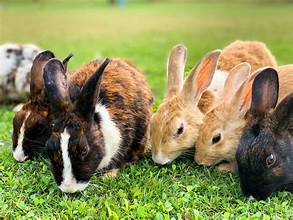



Pingback: What You Need To Know About Rabbits Health Issues - Positvley Pets